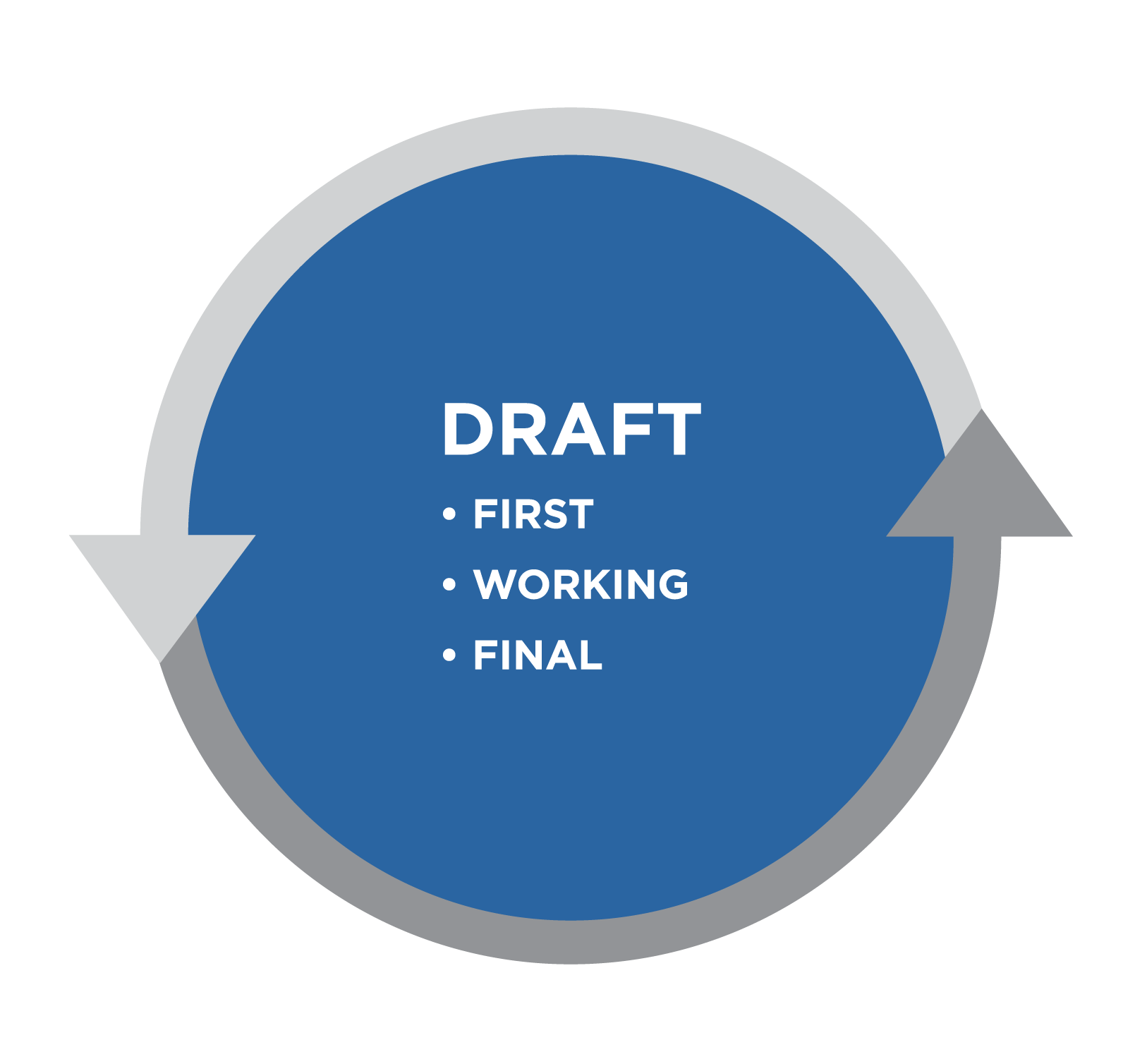Identify Drafting Activities
We’re ready to dive into the process of writing, proper.
As we do, consider these observations from Dr. Pat Thomson, from the School of Education at The University of Nottingham.
There is a strong temptation to send things off too early. Finishing a first draft usually feels like a win – even a triumph. You didn’t know that it was going to be possible to write that much and here it is – all your words in one place. You rush to get it to your professor and then wait impatiently for the response. And when it comes, it suggests major revisions… Corrections beyond editing? This is a disaster. I am hopeless. The thesis/paper is doomed. I will never finish. The professor is an unfeeling monster.
Not true. All it takes is revision, some of which could have been done in the first place if we hadn’t felt so darned elated that we’d actually produced a text.
But on the other hand…some people are feel deeply that their writing isn’t going to be good enough, now in the first draft, and probably ever.  All of the research on writer’s block suggests that people who aim for perfection the first time round are likely to seriously inhibit their writing. They agonize over phrases, work on a first sentence until they can’t face it any more, take weeks to get a few pages written to their impossibly high expectations. We often see this kind of person characterized in movies – the unsuccessful writer who begins confidently on a first sentence but some hours later is surrounded by crumpled-up papers and sits despondently, staring sadly at a blank screen. Academic writers do this too.
All of the research on writer’s block suggests that people who aim for perfection the first time round are likely to seriously inhibit their writing. They agonize over phrases, work on a first sentence until they can’t face it any more, take weeks to get a few pages written to their impossibly high expectations. We often see this kind of person characterized in movies – the unsuccessful writer who begins confidently on a first sentence but some hours later is surrounded by crumpled-up papers and sits despondently, staring sadly at a blank screen. Academic writers do this too.
Part of the problem seems to be that in conversations about academic writing we don’t talk enough about the inevitability of the crappy first draft and the importance of revising. We don’t suggest that it takes more than one go to reach the levels of polished prose that we admire. But really – let me reiterate – it doesn’t happen straight away. If we just read finished articles and never see work in progress – and how many of us actually do get to see the work of experienced writers along the way – then we have no idea how much revising good academic writers actually do.
What You Will Learn to Do
- identify strategies for drafting from an outline
- identify considerations unique to early drafts
- identify the value of multiple drafts
Contribute!
Candela Citations
- Outcome: Drafting. Provided by: Lumen Learning. License: CC BY: Attribution
- Image of Draft. Authored by: Kim Louie for Lumen Learning. License: CC BY: Attribution
- Good Academic Writing - It's About Revision Not Editing. Authored by: Pat Thomson. Provided by: University of Nottingham. Located at: https://patthomson.net/2014/02/24/good-academic-writing-its-about-revision-not-editing/. Project: Patter. License: CC BY-NC-SA: Attribution-NonCommercial-ShareAlike
- Image of student with writer's block. Authored by: Jonno Witts. Located at: https://flic.kr/p/4GDWJ2. License: CC BY-NC: Attribution-NonCommercial
